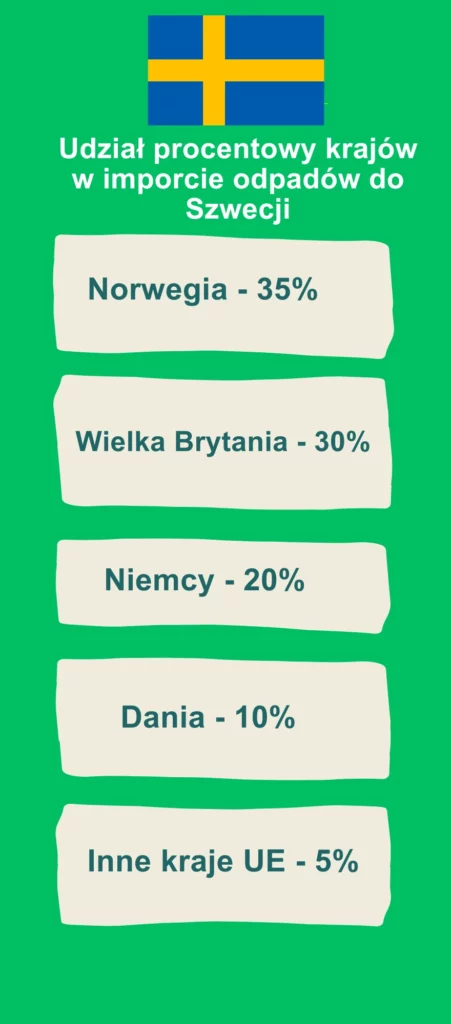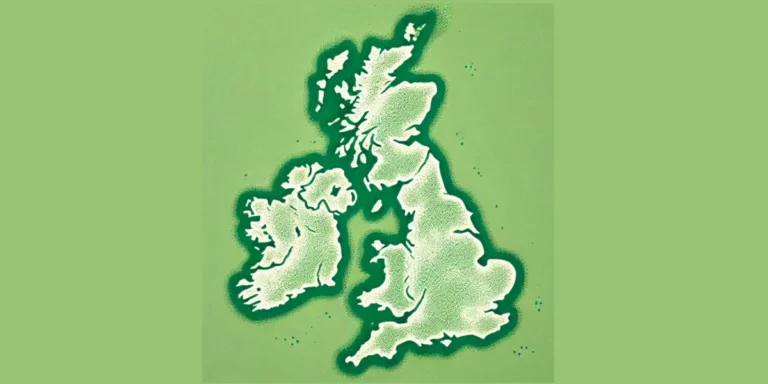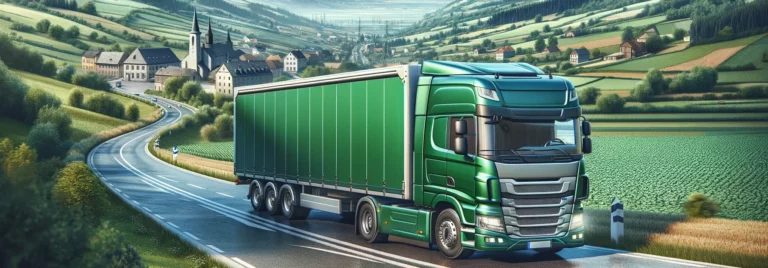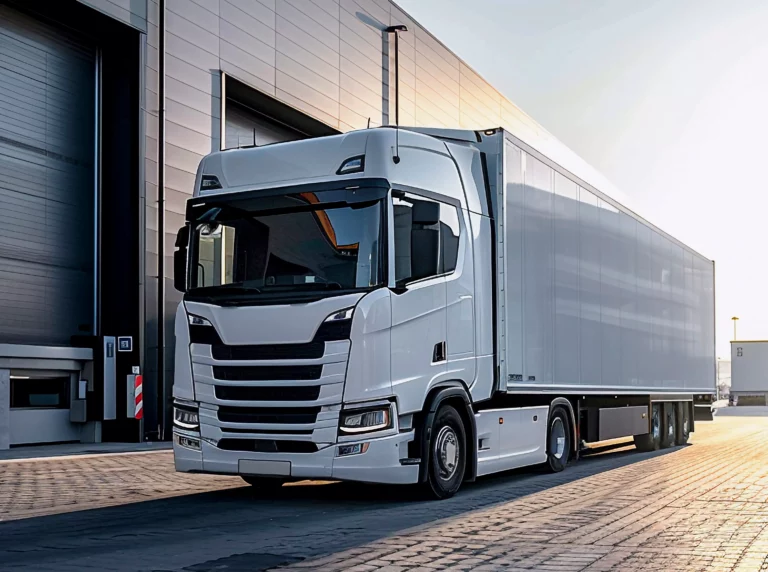Waste transport to Sweden - an opportunity for companies and a challenge for the system
Sweden is regarded as a role model in waste management. With efficient recycling, incineration with energy recovery and advanced segregation, the country recycles more than 99% of its municipal waste. Only around 1% ends up in landfills. Such an impressive result also comes at a price - there is a shortage of raw material to power the plant.
Potrzebujesz pomocy w uzyskaniu pozwolenia na transport odpadów do Szwecji?
e.nadolna@ekologistyka24.pl , +48 881 045 376
j.blazewicz@ekologistyka24.pl , +48 500 867 153
Domestic sources of waste are not sufficient to keep all incinerators and recycling plants in operation. Therefore, Sweden regularly imports waste from other European countries such as Norway, the UK, Germany and Denmark. In 2022, according to Eurostat and Avfall Sverige (Swedish Waste Management Association), more than 1.3 million tonnes of waste from abroad came into Sweden. These were mainly combustible wastes used as fuel in energy recovery plants.
Below is an estimate of the share of waste imported into Sweden from selected European countries:
| Country of origin | Percentage share of waste imports to Sweden |
|---|---|
| Norway | 35% |
| United Kingdom | 30% |
| Germany | 20% |
| Denmark | 10% |
| Other EU countries | 5% |

Sweden also imports limited amounts of waste from outside Europe, mainly for research or specialised treatment. In 2022, such waste accounted for less than 1% of total imports.
What regulations govern waste transport in Sweden?
The transport of waste within Sweden and its import from other countries is precisely regulated by Avfallsförordning (2011:927). Paragraph 36 therein indicates:
36 § Det krävs ett särskilt tillstånd för att
1. yrkesmässigt transportera avfall, eller
2. transporter avfall som har uppkommit i en yrkesmässig verksamhet om
(a) transporterna under ett kalenderår sammanlagt avser mer än 10 ton avfall eller mer än 50 kubikmeter avfall,
(b) transporterna under ett kalenderår sammanlagt avser mer än 100 kilogram farligt avfall eller mer än 100 liter farligt avfall,
(c) avfallet innehåller kvicksilver och utgörs av annat än hela lysrör eller andra ljuskällor, eller
(d) avfallet innehåller cyanid, kadmium eller en PCB-produkt.
What it means:
Article 36 - Obligation to obtain a specific permit
A specific permit is required for:
1. professional (commercial) transport of waste, or
2. the transport of waste generated in the course of professional activities, if:
(a) in any calendar year, the total weight of waste transported exceeds 10 tonnes or the volume exceeds 50 cubic metres,
(b) the total weight of hazardous waste transported per calendar year exceeds 100 kg or the volume exceeds 100 litres,
(c) the waste contains mercury, but not whole fluorescent lamps or other complete light sources,
(d) the waste contains cyanide, cadmium or a product containing PCB (polychlorinated biphenyls).
A waste transport permit can be issued in two modes - indefinite (for non-hazardous waste) and three-year term (for hazardous waste). It is possible to obtain two separate permits for each type of waste or one combined permit for all wastes, but entitlements to transport specific types of waste will still be valid according to the above guidelines.
What are the penalties for not having a waste transport permit?
Failure to obtain the relevant permit in Sweden is a serious infringement. Under the Act Miljöbalken (1998:808), Article 29, para. 4 and 4aA person carrying out illegal waste transport can be fined and, in more severe cases, imprisoned for up to two years, as transport without a waste permit is treated as an environmental crime. If you plan to transport waste to Sweden, do it legally with our help. Get in touch with us!
The Swedish waste market as an opportunity for hauliers
The Swedish waste treatment system cannot do without external support. For transport companies, this means a real opportunity to enter a stable, developed market. The high level of organisation and the constant demand for waste means that transports to Sweden can be regular and profitable.
According to reports from Avfall Sverige, the largest demand is for combustible waste (RDF), bulky waste and textiles. Sweden is actively looking for partners who can provide a steady supply of these fractions. This is particularly important during the winter season, when the demand for energy produced by thermal waste conversion processes increases.
However, in order to enter this market, it is necessary to meet a number of legal requirements - both at Swedish and EU level.
Ecology24, with more than a decade of experience, specialises in comprehensive support for transport companies. We advise, prepare documentation, contact authorities and help you obtain permits both on the Swedish market and in other EU countries. And if you already have a Swedish permit (or any other) and want to find a customer for your waste transports, register with our database of carriers at www.odpadytransport.pl and get yourself noticed by potential contractors.
Summary
Sweden is not only a leader in recycling, but also a country open to international cooperation in waste management. Waste imports are indispensable for the operation of local facilities - and this creates concrete opportunities for haulage companies.
For those who want to participate legally and effectively, it is necessary to obtain the relevant permits. With the support of Ecologistics24, the path to the Swedish market becomes simpler and safer. Contact us to find out how to start legally transporting waste to Sweden and gain new business partners.







